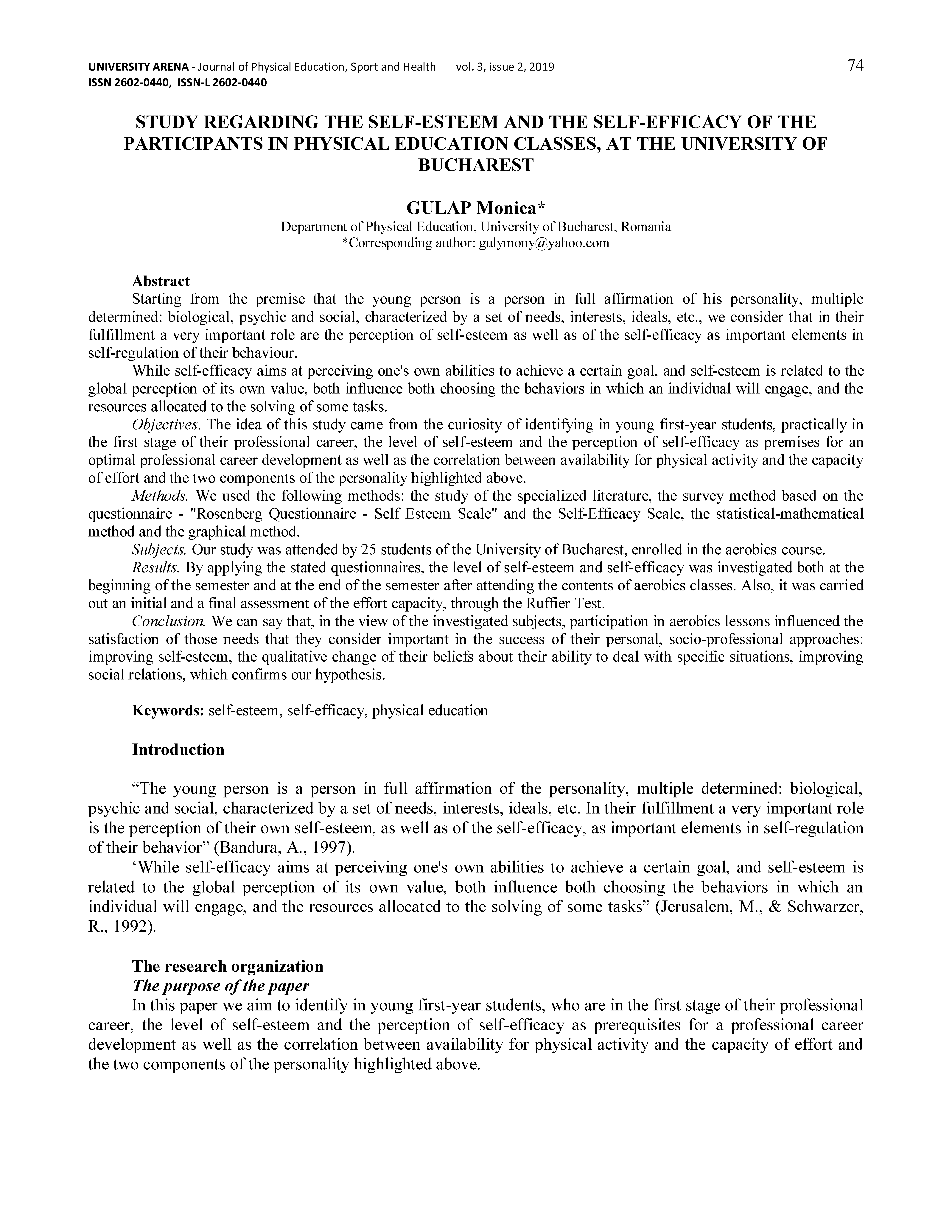STUDY REGARDING THE SELF-ESTEEM AND THE SELF-EFFICACY OF THE PARTICIPANTS IN PHYSICAL EDUCATION CLASSES, AT THE UNIVERSITY OF BUCHAREST
DOI:
https://doi.org/10.62229/UaIII_2_19-13Keywords:
self-esteem, self-efficacy, physical educationAbstract
Starting from the premise that the young person is a person in full affirmation of his personality, multiple determined: biological, psychic and social, characterized by a set of needs, interests, ideals, etc., we consider that in their fulfillment a very important role are the perception of self-esteem as well as of the self-efficacy as important elements in self-regulation of their behaviour.
While self-efficacy aims at perceiving one's own abilities to achieve a certain goal, and self-esteem is related to the global perception of its own value, both influence both choosing the behaviors in which an individual will engage, and the resources allocated to the solving of some tasks.
Objectives. The idea of this study came from the curiosity of identifying in young first-year students, practically in the first stage of their professional career, the level of self-esteem and the perception of self-efficacy as premises for an optimal professional career development as well as the correlation between availability for physical activity and the capacity of effort and the two components of the personality highlighted above.
Methods. We used the following methods: the study of the specialized literature, the survey method based on the questionnaire - "Rosenberg Questionnaire - Self Esteem Scale" and the Self-Efficacy Scale, the statistical-mathematical method and the graphical method.
Subjects. Our study was attended by 25 students of the University of Bucharest, enrolled in the aerobics course.
Results. By applying the stated questionnaires, the level of self-esteem and self-efficacy was investigated both at the beginning of the semester and at the end of the semester after attending the contents of aerobics classes. Also, it was carried out an initial and a final assessment of the effort capacity, through the Ruffier Test.
Conclusion. We can say that, in the view of the investigated subjects, participation in aerobics lessons influenced the satisfaction of those needs that they consider important in the success of their personal, socio-professional approaches: improving self-esteem, the qualitative change of their beliefs about their ability to deal with specific situations, improving social relations, which confirms our hypothesis.


